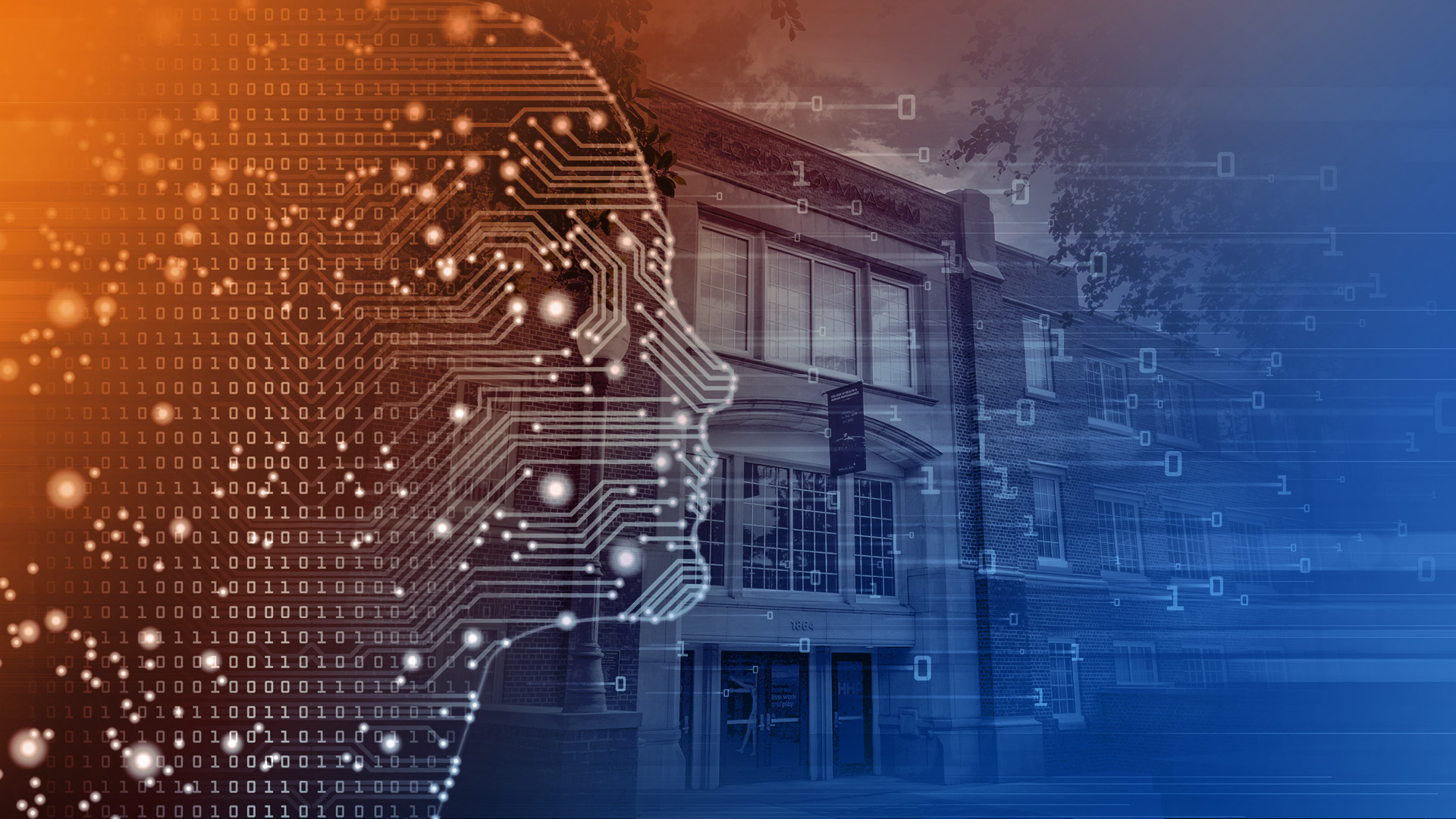 HHP - Update me in site_config > General Configuration
HHP - Update me in site_config > General Configuration
Researchers in the College of Health & Human Performance are focused on incorporating AI to study physical activity, movement and wellness; as well as AI’s impact on Florida industries like travel, tourism, hospitality, sports and sporting events.

March 1, 2021
Artificial intelligence, just like the personal computer and mobile phone, is transforming the world we live in. The College of Health & Human Performance (HHP) is focused on bringing AI to change the way we diagnose diseases like Parkinson’s disease and approach public health issues like obesity and addiction. In addition, travel, tourism, hospitality, sports and sporting events, like all other industries, have become increasingly digitized. Researchers are focused on analyzing big data and gaining wisdom from the use of machine learning.
We invite you to hear from HHP researchers, as well as invited guests and alumni, about how AI is being incorporated into the way we live, work and play.
David Vaillancourt, Ph.D., chair and professor in the Department of Applied Physiology and Kinesiology, will present to the UF Informatics Institute at 12 p.m. ET on Wednesday, March 10, 2021.
Thursday, March 10 at 12 p.m. ET - Register at informatics.research.ufl.edu
Title: A Journey from a Voxel to a Clinical Application for Parkinsonism
Abstract: Across the globe, there has been a considerable growth in the number of people diagnosed with Parkinsonism. Estimates indicate that from 1990 to 2015 the number of Parkinsonism diagnoses doubled, with more than 6 million people currently carrying the diagnosis, and by year 2040, 12 and 14.2 million people will be diagnosed with Parkinsonism. Parkinson’s disease (PD), multiple system atrophy Parkinsonian variant (MSAp), and progressive supranuclear palsy (PSP) are neurodegenerative forms of Parkinsonism, which can be difficult to diagnose as they share similar motor and non-motor features, and they each have an increased chance of developing dementia. In the first five years of a PD diagnosis, estimates suggest that about 58% of PD are misdiagnosed, and of these misdiagnoses about half have either MSA or PSP. There is a critical need to develop valid, non-invasive biomarkers for Parkinsonian syndromes. I will take you on our journey from an initial laboratory finding using imaging in Parkinson’s disease, to now leveraging the power of machine learning and the internet to test models that predict differential diagnosis in Parkinsonism with potential far reaching impact.
Learn more about Dr. Vaillancourt and his research >
Read more about HHP's AI hiring initiatives >
UF Informatics Institute: AI Advances and Applications Virtual Seminar - February 24, 2021 – Rachel J. C. Fu, Ph.D., University of Florida
UF HHP AI Speaker Series: Health Education & Behavior - February 18, 2021 - François Modave, Ph.D., University of Florida
UF HHP AI Speaker Series: Applied Physiology & Kinesiology Focus - Jan. 21, 2021 - Ruogu Fang, Ph.D., University of Florida
UF HHP AI Speaker Series: Sport Management Focus - Nov. 5, 2020 - Bradley Baker, Ph.D., University of Massachusetts
EFTI.TALK - AI/Data Science in Hospitality and the Future - Oct. 19, 2020 - Pavan Kapur, SVP Commercial Operation, Caesars Entertainment; Bob Schalow, VP Franchise Operations, Jack in the Box
--
Comment / Like / Share - Connect with #UFHHP
FACEBOOK │ INSTAGRAM │ LINKEDIN │ TWITTER
--